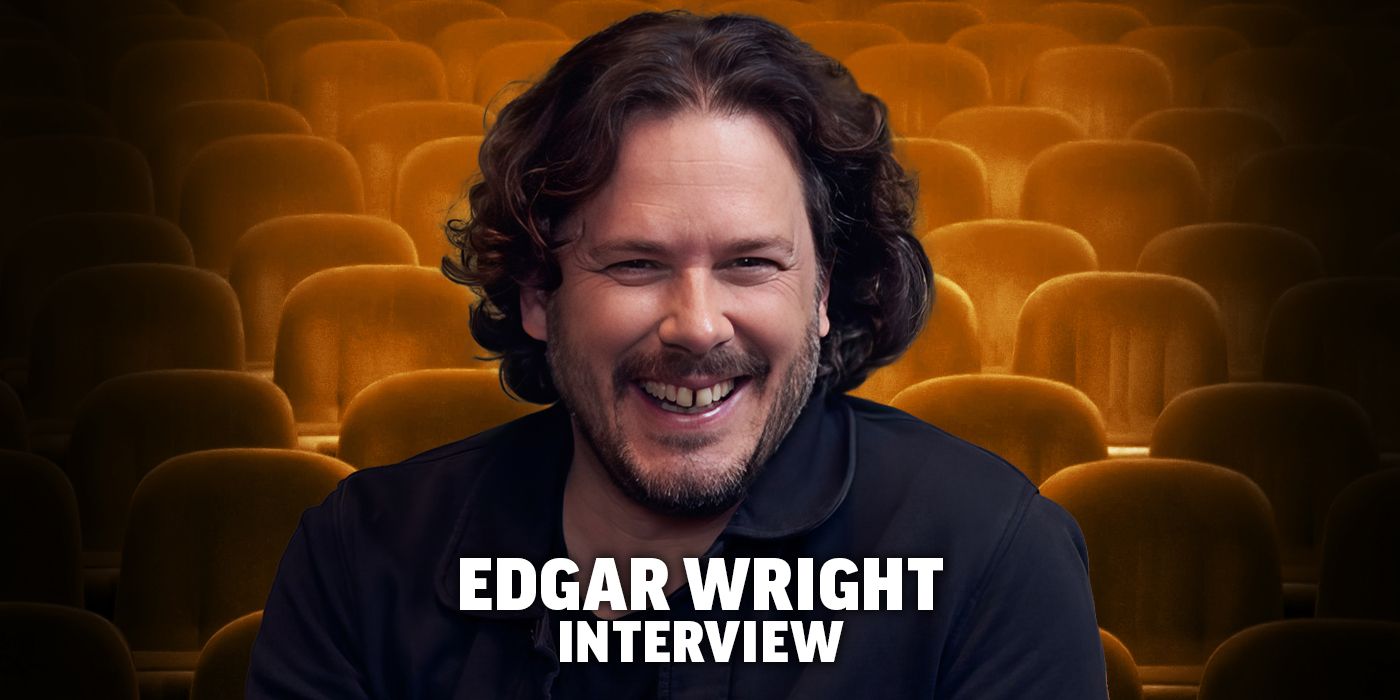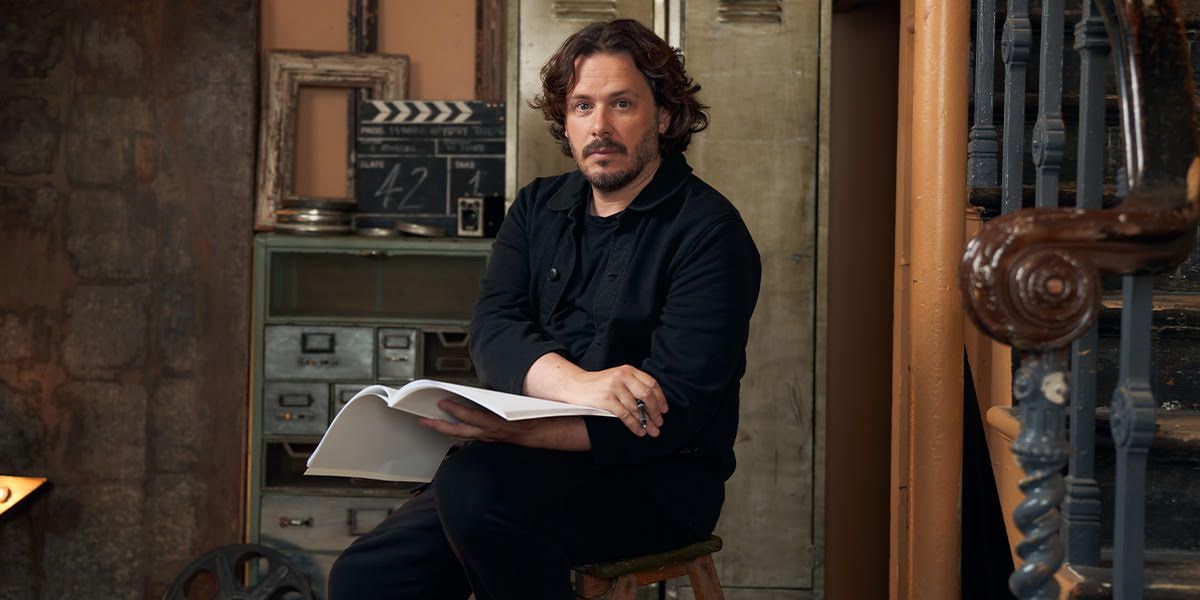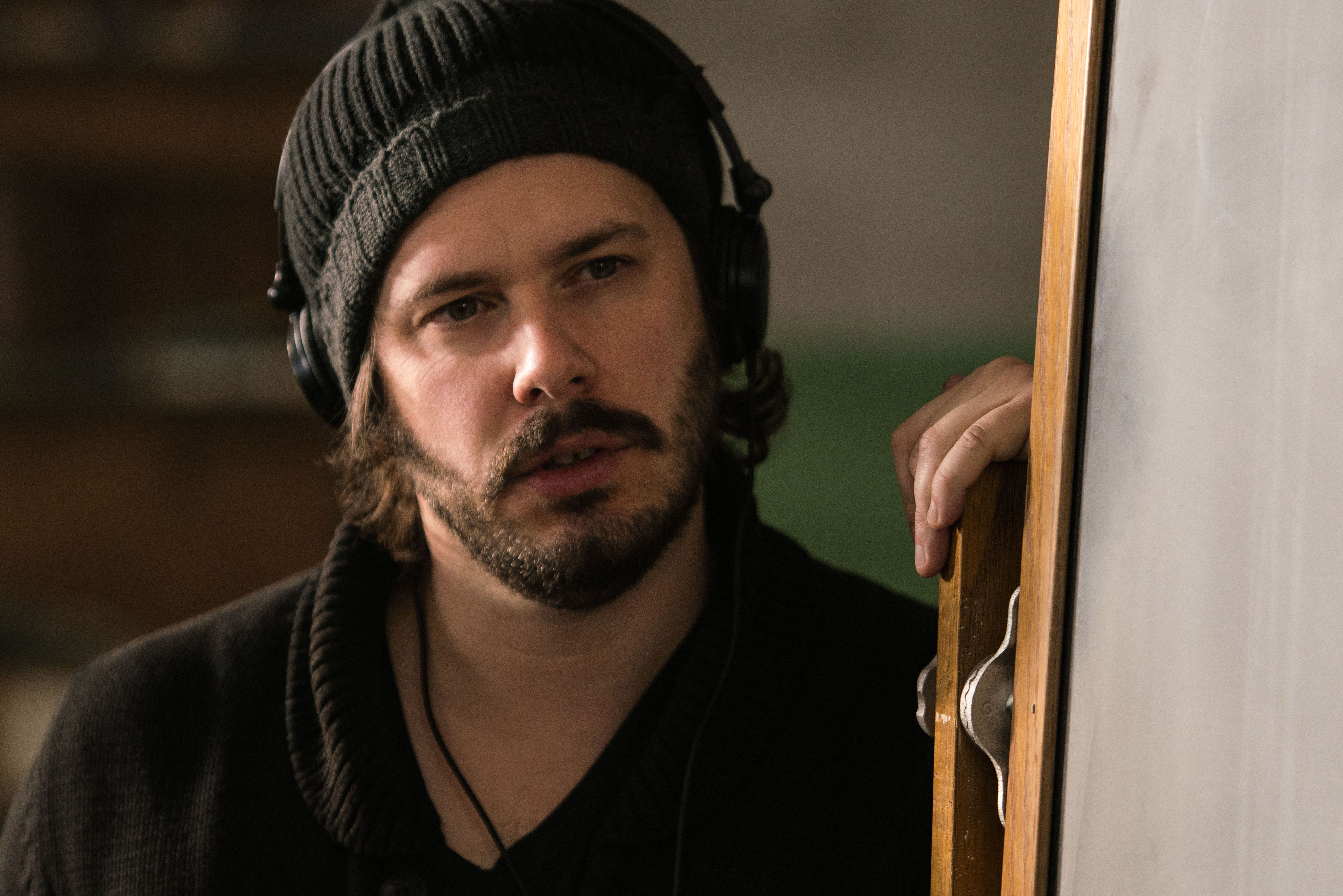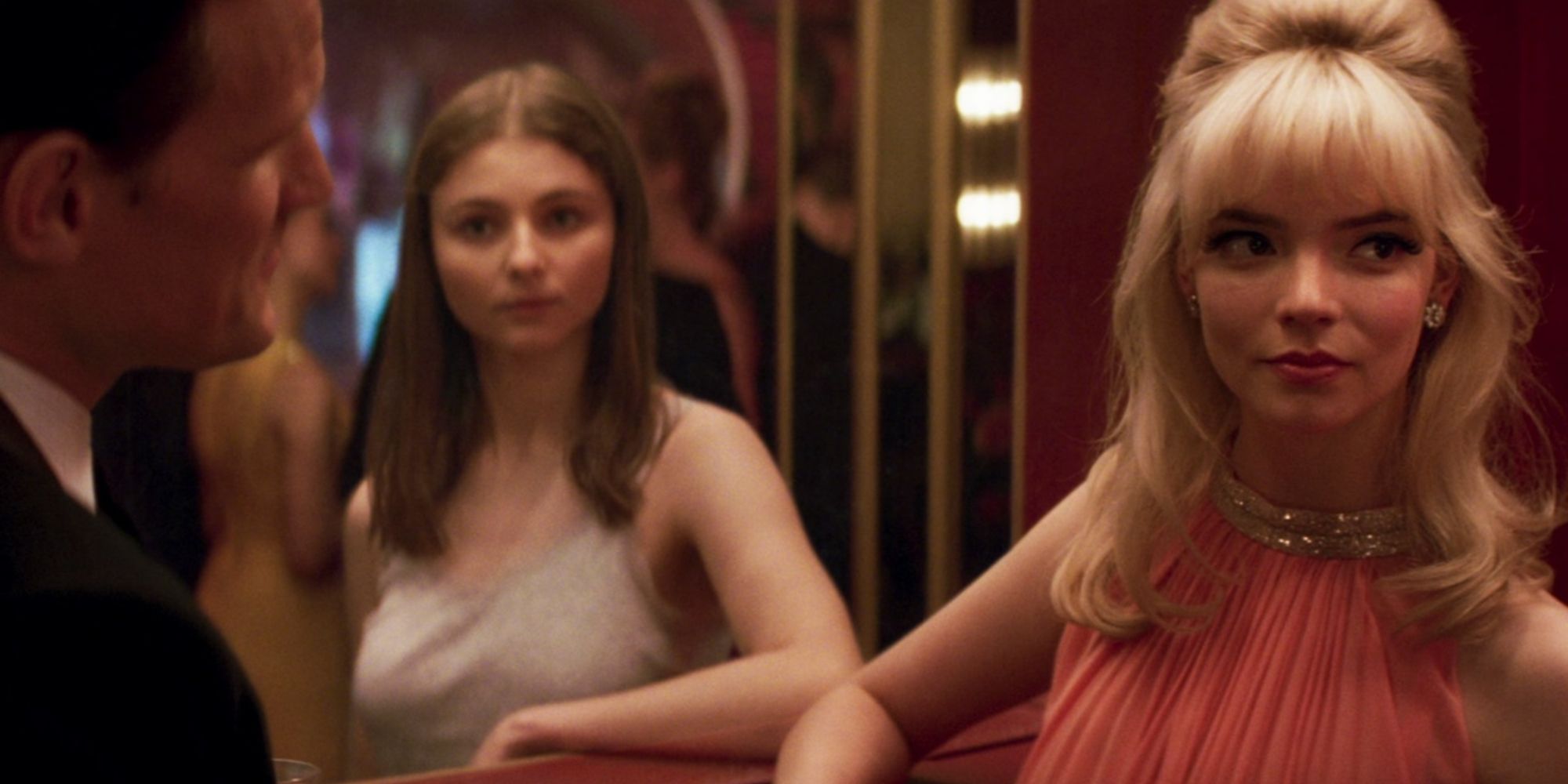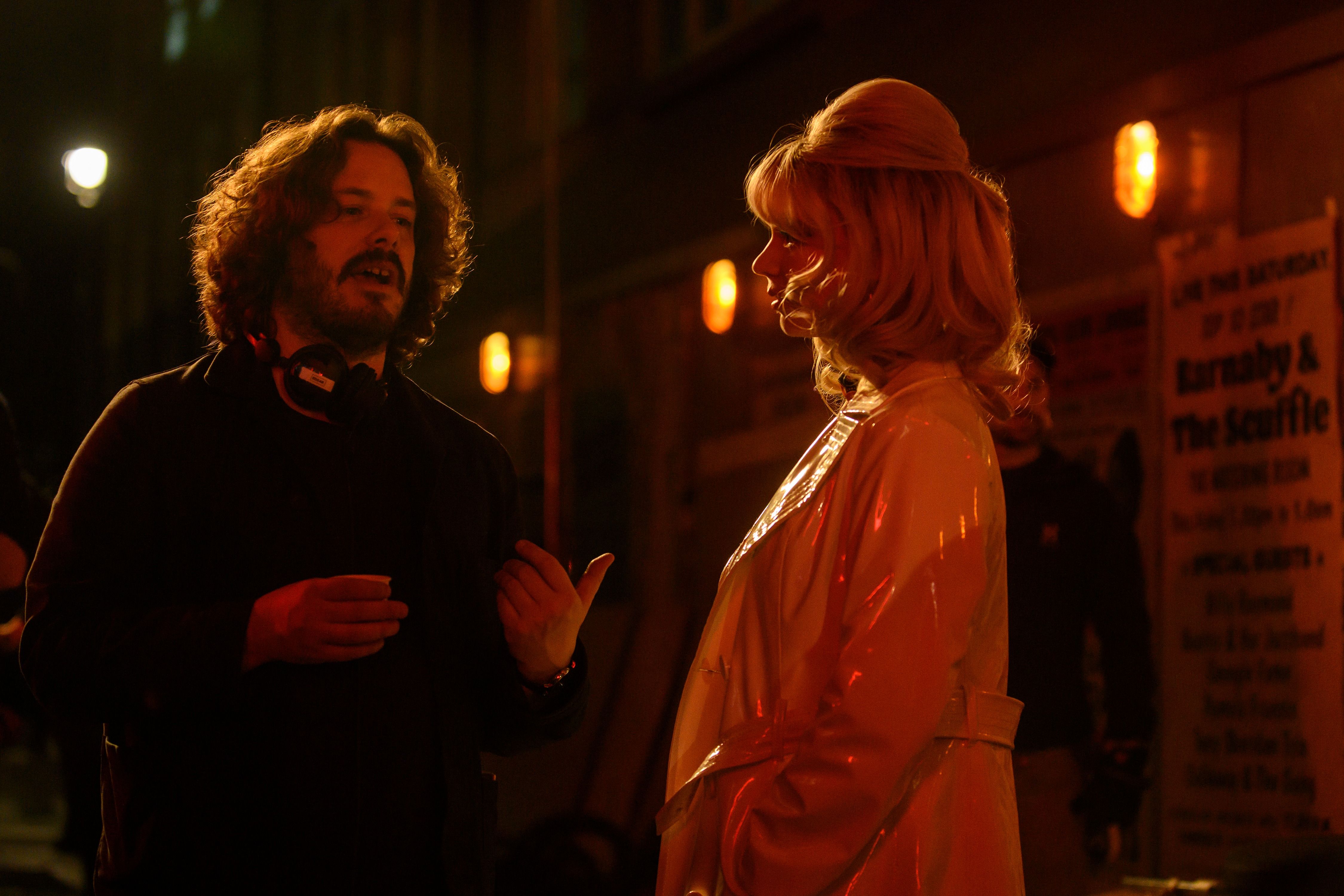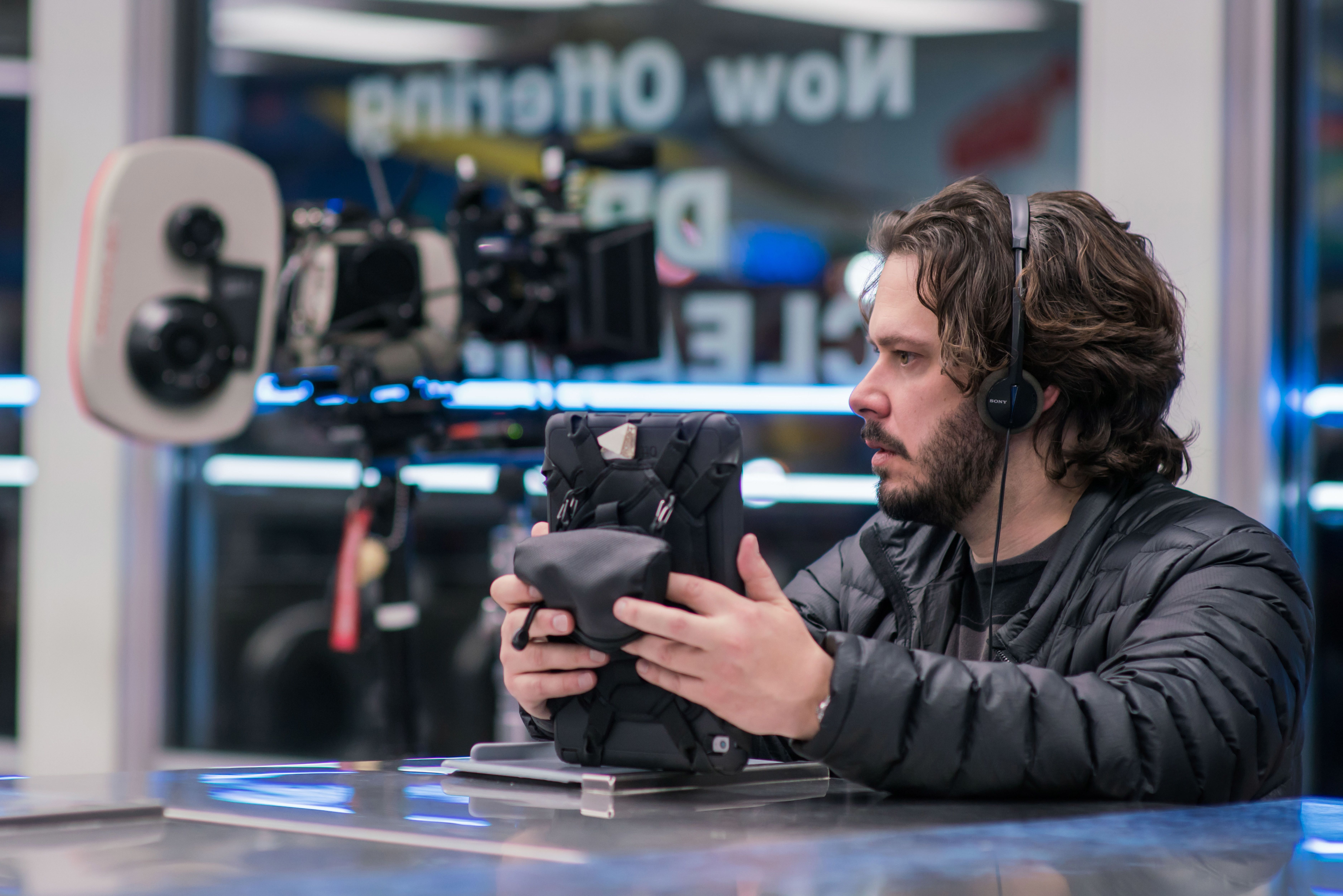If you’re a fan of Edgar Wright and wish he could teach you how he makes movies—or if you’re an aspiring filmmaker who wants to learn from a great filmmaker—then I have great news, now you can! Because Wright and the BBC have teamed up for a new BBC Maestro course where he will teach you his approach to making movies. Over twenty-seven lessons, Wright talks about all aspects of the creative process including writing, directing, casting, location scouting, collaborating, funding, production, editing, sound design, distribution and more.
One of the many reasons Wright is an excellent person to learn from is he didn’t go to film school and he wasn't handed anything. He started as an independent filmmaker making A Fistful of Fingers, went on to direct TV in the United Kingdom, including Spaced, and eventually made films like Shaun of the Dead, Hot Fuzz, Scott Pilgrim vs. the World, Baby Driver, Last Night in Soho, and The Sparks Brothers documentary. He’s an ideal person to teach how to get the most out of your budget and learn everything about the craft.
Recently I got to speak with Wright about his BBC Maestro course. He talked about how it happened, what he did early in his career to help him learn how to make a movie, why he’d love to take a filmmaking course from Mike Leigh or Ken Loach, his thoughts on deep fakes and new technology, how he pulled off the in camera effects on Last Night in Soho, why he listened to Robert Rodriguez's commentary for Desperado before making Shaun of the Dead, his writing process, and how he hopes to be filming a new movie next year.
Check out what Edgar Wright had to say below and here’s how to learn more about his BBC Maestro course.
COLLIDER: I know that you are a perfectionist with everything you do, so what ended up being the hardest part of doing this teaching course?
EDGAR WRIGHT: I think that the most difficult thing was also the reason I wanted to do it. Obviously, in most Q&As that you do, you get asked a question by a fan or a young filmmaker such as, "How do you get into movies? How do you direct movies? How can I become a filmmaker?" And usually, you have a short answer to that, which is "Nothing's stopping you from being a director. You've got an iPhone, get out there and do it." But this afforded me the chance to give long-form answers to everything, and probably the most difficult thing was vocalizing and articulating answers that I'd never said out loud. Things that I just do instinctually throughout the filmmaking process.
So a big part of that was I tried to map out all my thoughts, first by voice memo, just answering the question off the top of my head, and then rewriting everything so it was more cogent as a lesson, really. My parents were both art teachers in their time, as well as artists, so I guess there was a full circle that at a certain point, I was going to have to become a teacher. But that was the tricky part. It's not dissimilar to directing itself. Directing is essentially about communicating your ideas, and so this, at length, is me communicating to the people who want to learn about every facet of the filmmaking process.
You are being filmed talking to the camera. How many takes did it end up being with you delivering these lines, because you're not used to being on that side.
WRIGHT: It's very intensive doing it. It was fun, and the BBC team was fantastic, but you're lecturing, and it's a lot of work, and I didn't think there'd be too many takes of things, because you also want it to feel natural. There are close to four hours of lectures. It's a lot of material, and it was definitely intense to film, but it was also fascinating, because it's something I hadn't really had to do at length like this.
You mentioned how you were rejected from film school. You clearly landed on your feet. Do you still feel a little bit inside like, "You should have taken me," or have you gotten over it now that you've had career success?
WRIGHT: No, I've gotten over it. I think I had the very fortunate thing, as I talk about in the course, of getting to learn on the job, and I was incredibly lucky that after my first film, A Fistful of Fingers, which I made when I was 20 years old, I started directing TV and I feel as though that was my college experience. That trial by fire of directing TV with a professional crew, first on cable and then at the BBC, was like just suddenly being out there and having to fly straight, which was really powerful to go through, because anybody who says that they're a fully formed filmmaker from the outset is a liar. You learn through great collaborators and you learn what you are doing in your job, and you learn a lot about the process through the work itself. So directing for TV was an incredible period that happened to me that I'm very grateful for. That entire period has factored into everything that I've done since, and that's why I think there's a big difference between A Fistful of Fingers and Shaun of the Dead, and part of that is there’s a nine year gap between the two, but it was nine years of learning on the job.
I think about what I thought I learned or knew about filmmaking when I moved to L.A. versus what I now know, and I'm not doing what you're doing. I'm just a reporter talking to people.
WRIGHT: When I made a film when I was 20, it was completely powered by this boundless energy, but also this naivety in that you think that nothing can go wrong. I think when you're older, you're well aware of every pitfall, and that can maybe, for some people, feel insurmountable, and so I think the thing with this is that you don't have to start at a certain time. You could start directing at any age. You don't have to be a young punk wanting to get into film. And I hope what the course does is inspire people at lots of different levels, and to approach filmmaking in a way where there are elements of it that you can do that don't require any camera equipment at all. They're more theoretical. They can be more about watching your favorite movies in a different way. There are lots of practical courses that I give people that they can do in their own time, and I hope that those things are where people can learn about filmmaking through films that they might have seen a hundred times.
That's stuff that Simon and I did when we were writing Shaun of the Dead. We would watch our favorite films and break them down and try and write out what the act structure of the film was. Usually people just watch their favorite films and enjoy them, but this time around it was interesting to deconstruct them. One of the exercises I suggest that I think is a genuinely great idea is watching films with the sound off, by just examining what visual storytelling is by turning the volume down.
I've actually done that before, just to watch and then see how it was constructed, but if you could take a course, like the course you created, if you could take the same course from a living filmmaker and a filmmaker that has passed on, who would those two people be?
WRIGHT: Okay, so the no longer with us filmmaker would probably be Alfred Hitchcock, because I think, obviously, through his book and documentary with Truffaut, he managed to impart a lot of his amazing lessons and about his creative process.
A living filmmaker, I think probably somebody who does something completely different from what I do. I'd love to see how Mike Leigh makes a movie or Ken Loach. People that approach things from a more improvised, devised standpoint. In the case of Mike Leigh, he famously devises his films with the actors, and sometimes starts a production without a clear sense of what the end result's going to be, which is completely different from the way that I work. Then there’s a great naturalistic documentary-style director like Ken Loach, to whom I would ask how do you get performances out of non-actors? How do you create this sort of feeling that you're not even watching a film anymore? I’d be more inclined to learn from people whose style is completely different from mine.
Because you are so structured with the way you make movies with story boarding, really thinking everything out before you step on set with animatics. You might have a breakdown if you started filming a movie and had no idea where it was going to end.
WRIGHT: I think it would be a fascinating process, and I say this in the courses. I say that the way that I work is a very specific way, and I'm going to teach people about filmmaking through the lessons that I've learned, but I do stress in places that different people do it different ways. Robert Altman was famous for just coming on set and finding the scene and seeing where it took them. I think there are a lot of directors that like to veer wildly off the script page and sometimes that leads to pure magic.
Completely. What are the hidden costs of making a big budget movie that no one talks about?
WRIGHT: It's difficult to answer. I've been careful about what I say, because whatever I comment on, there’s always people who say, "Hey! How dare you?!"
What I will say is that the way things are done can sometimes mean that the money is not getting on screen. Sometimes it's just the way that it works or sometimes it’s from foreign films that don't have the same regulations. If you watch Hong Kong movies from the eighties and nineties, you might think to yourself, "Oh wow, how did they do that?", and the answer is that they had no safety regulations whatsoever and that's not necessarily a good thing. So I think it's different.
What's the biggest hidden cost? That's a tricky one to answer. One of the things that are interesting is that with technology moving in the way that it's going, it'll probably have a revolution eventually. If you look at the Daniels' film, Everything Everywhere All At Once, they had a VFX crew of five people who did most of the effects of that movie, and obviously, that is in sort of total antithesis to the way that the big franchise movies work. So maybe just in terms of people's knowledge of technology as it progresses is going to revolutionize the industry. Who knows?
When you saw that movie... Because I think that's one of the best films of the year. I can't rave enough about that film. When you watched it, did it inspire you? Because what they were able to put on screen is incredible.
WRIGHT: Well, I got to know those guys, and I talked to them about it, and I thought it was just a very smart way of making a film, and I've tried to do the same in my previous movies, which is to make sure the money's on screen. I think the worst thing that can happen with some movies that are incredibly expensive, is that the money isn’t translated into the finished product. That's terrible, and that is a waste of money. I would hope, in a similar way to the Daniels' films that Shaun and Hot Fuzz and those movies look more expensive than they were. Even Baby Driver, I think, maybe looks twice as expensive as it actually was, and that comes down to just being smart during the filmmaking process and making sure there's no waste, and there are a lot of filmmakers that do that. Anybody from Robert Rodriguez to Wes Anderson is so precise in what they're doing that they don't waste a lot of money making a movie.
Speaking of money on set, how important is spending extra on craft service to the overall success of your movie?
WRIGHT: Keeping the crew happy generally through long hours is a good idea.
Do you look forward to location scouting or do you dread it?
WRIGHT: No, location scouting is fun. For Last Night in Soho, we did our location scouting at 6:00 AM in the morning, and the reason why was it was the only time we could get onto those streets before filming without getting run down by a car. So the only time to do it was 6:00 AM. But it was actually sort of weirdly social. Me and the production designer, Marcus, and the AD, Richard Graysmark, and Camilla, our location manager, would get together. We would know where all the 24-hour coffee shops were. Richard would say, "Oh, I'll meet you at Balans," because Balans is the only shop that's open at 5:45 AM. So we’d get a coffee and then do a location scout. Even though it was very antisocial hours, it was really fun.
One of the things that's happened over the last few years is deep fakes, in the way AI technology has now... There's a website now where you can enter in anything and an AI can print out an image. How do you think new technology like this is going to possibly impact filmmaking?
WRIGHT: That's a good question. I think it's something that's going to impact everything, because I think the scary thing is that in, God knows how many years’ time, you’ll soon be seeing news footage that is completely fabricated. I know that stuff is kind of out there already. There's already a thing that you have in movies called Face Replace, which people use for action movies, where you're replacing a stuntman’s face with the actor's face. That's been around for 15 years more, but obviously, that just gets more and more advanced and I think they will become incredibly slick. But I also think there's probably a thing where an audience is trained to assume that nothing is real anymore, and so when people are actually faced with effects or stunts that were done for real, it's sort of shocking to them, the reality of it. I still push for doing things in camera as much as possible, even though technology is letting you create any kind of fantasy, I think when things become that fantastical, they become a bit airless to me, and I care less about the stakes.
You talk about it in your class, the sequence where you break down Last Night in Soho and how you pulled off on camera effects while also using VFX to help amplify the illusion.
WRIGHT: Absolutely. I talk about this in the course, where you're creating a kind of magic onset, and you're even creating enthusiasm and camaraderie within the crew. I think if you're doing a big green screen film and if for every single shot you're saying, "Oh, don't worry about that, they'll put that in later. Just look at this tennis ball," it maybe, over a while, makes the filming process less fun. Whereas stuff that I've done in recent films like Last Night in Soho, everybody would crowd around the monitor to watch the shot after because it's more along the lines of, "That's the shot, this is the shot, and we did it, and it works."
Most of the driving stuff in Baby Driver is done for real, and what you get out of that is a sort of randomness to the moment such as with shots on the freeway where they’re driving, and they're going so fast that the window is rattling, and I think those little details grab people, even if they only realize it subconsciously, they know that something is different. They can feel when something is real. When I talk about that shot in Last Night in Soho with all the Texas switches, when I say to people it was all done in one shot with no stitches, they can't conceive it, and it's like, "Well, that's how they used to make movies." There was a time when there was no CGI, and all of the tricks had to be done for real. That's old-fashioned movie-making.
If there's someone out there who's 16 or 18 who really want to start making movies, they have seen movies, but maybe they don't have a film education, what do you recommend they watch, or how do they begin studying cinema to start on the ground level?
WRIGHT: It's staring you in the face. You should do my BBC Maestro course. I think within the course, here are practical exercises that I give people, like the thing of watching films with the sound turned off. I think in the streaming age, commentaries more or less going away is a sad thing, but that's not to say that you can't find them out there. Directors’ commentaries, for a lot of people, was their film school. People who didn't go to film school, but listened to every director's commentary, learned a lot of practical advice. I know I did.
I remember before I made Shaun of the Dead, I would listen to Robert Rodriguez's commentary for Desperado, which was like a film school in itself, because he’d say, "Here's how to make a film in 25 days look bigger and better than one shot in a hundred days." It's astonishing. So there's a lot of stuff that's out there and a lot of stuff that's on the internet for free to read, like screenplays and some supplemental material or film essays and commentaries. But I try to, within the course, talk about that stuff and about what to do next. If you enjoyed this course, how can you go out there and learn more in the way that I did by not going to film school?
So it’s a lot about reading and watching and learning through that. What I literally used to do as an amateur filmmaker was watch films and try and copy them without the equipment. And in doing so I was trying to figure out how it was done in a very jerry-rigged way while still learning about the process. Even when I used to edit films, and of course now people can do it all on their iPhone, it used to be two VHS recorders together, and I literally had to press record, pause, and then take my finger off the pause button, and then press pause again, and you'd have to do it all in order, in linear order. So if something went wrong, you would have to go back and start all over again. So that sort of process of editing is the way that I learned how to edit, and now can do it all on a phone. It’s so much easier than it used to be!
You mentioned in the course how much you hate writing. One of the things I'm just curious about is you talk about how it took you 10 years to come up with Baby Driver, or longer, and how you will think about ideas until they are sort of forced to come out. For people that struggle with writing, how often have you written something where you are writing multiple pages on a screenplay, and you're ultimately like, "This is just not working. I've got to put it away, this idea's done."
WRIGHT: I think you'll just have to force things through. There's definitely things that I've started and not finished, and then maybe I’ll go back and look at something and say, "Hey, why didn't I finish this? This is good." With something like Baby Driver, there would be whole days, maybe even weeks where nothing came.
I call it in the course "creative procrastination". So, procrastination, doing something that has nothing to do with the work is not helpful, although sometimes just walking around the block is a good idea if you're stuck. But what I like to do is read and watch and listen to stories and news that relate to the script I’m trying to write. Even when I was doing Baby Driver, if I was getting stuck, I would go to Starbucks, I would buy the L.A. Times, and I would read the local section about crimes, and just write down names, streets, cars, and just pick up details by osmosis, and then something will unlock, and then in the middle of the night, I’d have an epiphany and say, "Ah! I know what my next idea is!"
But sometimes it isn't as simple. There are some writers who can get up at nine o'clock in the morning and just start writing and finish at five, and I'm not one of those people. It sort of comes in tides, and sometimes it's like the tide goes in and nothing comes and then suddenly, it's like, "Oh, I've got it," and then you write 10 pages in a row. Everybody has their different process, but I think the thing that’s important to just demystify for people is that if you're not one of those people who can just write and write and write, like Neil Gaiman, it's okay. There's other ways of doing it as well.
There's a funny story that I always loved about Roger Ebert writing Beyond the Valley of the Dolls in an office next door to Russ Meyer. And Ebert’s tapping away on the typewriter, and he stops to think, and Russ Meyer, when he hears Roger Ebert stop typing, says, "What's the matter?" I think that's amazing. The idea that when you're writing, you are just writing. You're never thinking, just keep writing. I find that funny, but I'm not one of those people. So part of this course is about demystifying the process by showing that not all people are superhuman. It doesn't come to everybody in the same way.
I've spoken to so many people in the industry, and it's amazing how some people will talk about how, "This idea just came to me and I wrote it in a week, and it was just done," and other people are like, "Yeah, I spent the last 10 years on this."
Everybody's different, and there's no right or wrong way to do anything. That's the key thing, and within the course, I talk about the ways that I do it, but also the ways that other people do it.
You know that I'm a fan, and I just want to know when you might be directing something again.
WRIGHT: Hopefully next year, but it's very much a TBD at the moment with a couple of things.
Check out the trailer for Edgar Wright’s BBC Maestro Course below:

